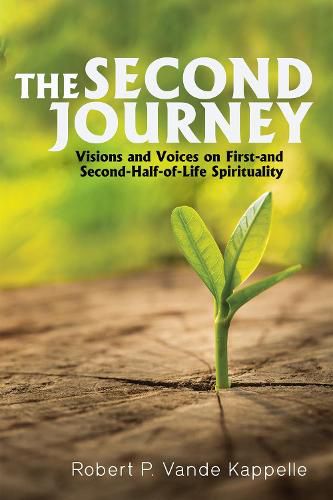Readings Newsletter
Become a Readings Member to make your shopping experience even easier.
Sign in or sign up for free!
You’re not far away from qualifying for FREE standard shipping within Australia
You’ve qualified for FREE standard shipping within Australia
The cart is loading…






This title is printed to order. This book may have been self-published. If so, we cannot guarantee the quality of the content. In the main most books will have gone through the editing process however some may not. We therefore suggest that you be aware of this before ordering this book. If in doubt check either the author or publisher’s details as we are unable to accept any returns unless they are faulty. Please contact us if you have any questions.
Spirituality is our connection to a greater whole. It is a journey
from God, to God, and with God,
and thus a journey toward Self. Through this process, we come to differentiate between our temporary self, called ego, and our permanent self, the part of us made for ongoing relationship with God. In the end, we discover that we know God by being known, much like one loves by being loved. There are two
halves
or phases in spirituality, sometimes flawed, sometimes overlapping, and other times distinct. While many people experience first-half-of-life spirituality, most never get to second-half-of-life thinking and living. Designed as a study guide for group or individual use, The Second Journey examines the development of Christian spirituality, starting with its conception in the biblical and Greek philosophical tradition and continuing in orthodox and heterodox expressions. Reading this book is like looking through one’s favorite album of photographs, each illustrating some aspect or dimension vital to spirituality. The range of portraits examined is extensive, including groups such as Platonists, Stoics, Gnostics, Quakers, Revivalists, Neo-Orthodox, and Eastern Orthodox, and individuals such as Philo, Valentinus, Origen, Dionysius, Augustine, Julian of Norwich, John of the Cross, Jonathan Edwards, John Wesley, Schleiermacher, Kierkegaard, Barth, Tillich, and Richard Rohr. Examining traditional and non-traditional thinkers, readers will discover that knowing God involves both light and darkness, usually in that order.
Spirituality does not make us otherworldly; it renders us more fully alive.
–Matthew Fox
$9.00 standard shipping within Australia
FREE standard shipping within Australia for orders over $100.00
Express & International shipping calculated at checkout
This title is printed to order. This book may have been self-published. If so, we cannot guarantee the quality of the content. In the main most books will have gone through the editing process however some may not. We therefore suggest that you be aware of this before ordering this book. If in doubt check either the author or publisher’s details as we are unable to accept any returns unless they are faulty. Please contact us if you have any questions.
Spirituality is our connection to a greater whole. It is a journey
from God, to God, and with God,
and thus a journey toward Self. Through this process, we come to differentiate between our temporary self, called ego, and our permanent self, the part of us made for ongoing relationship with God. In the end, we discover that we know God by being known, much like one loves by being loved. There are two
halves
or phases in spirituality, sometimes flawed, sometimes overlapping, and other times distinct. While many people experience first-half-of-life spirituality, most never get to second-half-of-life thinking and living. Designed as a study guide for group or individual use, The Second Journey examines the development of Christian spirituality, starting with its conception in the biblical and Greek philosophical tradition and continuing in orthodox and heterodox expressions. Reading this book is like looking through one’s favorite album of photographs, each illustrating some aspect or dimension vital to spirituality. The range of portraits examined is extensive, including groups such as Platonists, Stoics, Gnostics, Quakers, Revivalists, Neo-Orthodox, and Eastern Orthodox, and individuals such as Philo, Valentinus, Origen, Dionysius, Augustine, Julian of Norwich, John of the Cross, Jonathan Edwards, John Wesley, Schleiermacher, Kierkegaard, Barth, Tillich, and Richard Rohr. Examining traditional and non-traditional thinkers, readers will discover that knowing God involves both light and darkness, usually in that order.
Spirituality does not make us otherworldly; it renders us more fully alive.
–Matthew Fox